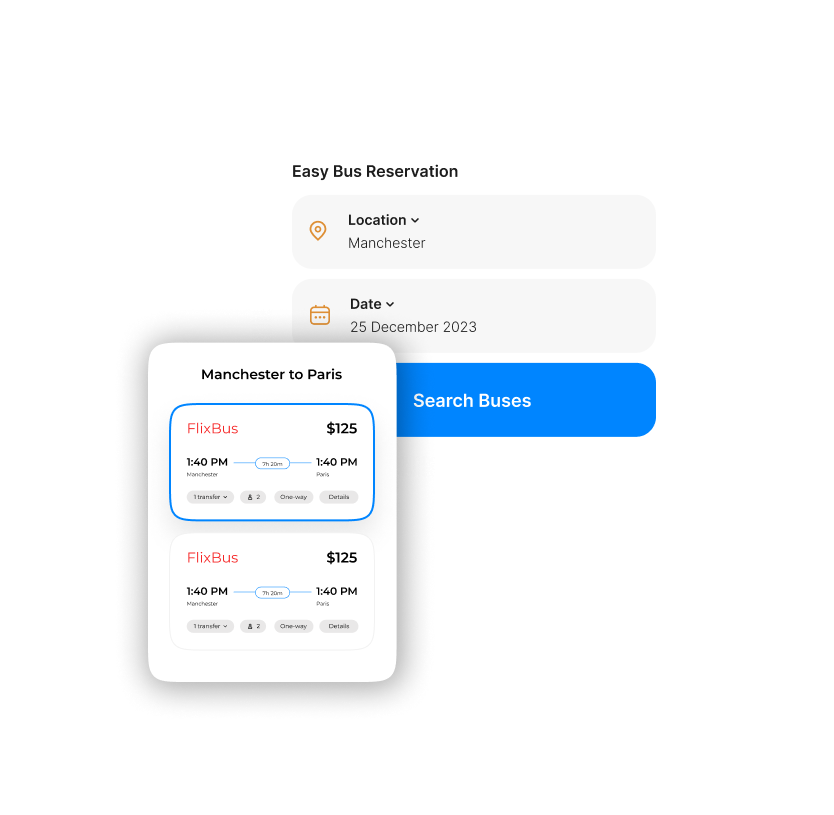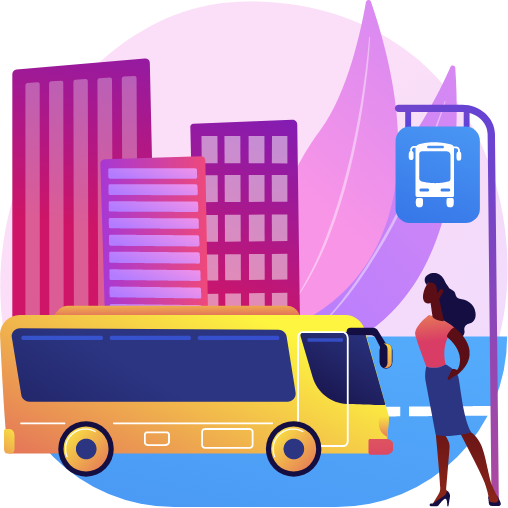
Bus Booking Software Development
Bus operators/Aggregators and fleet management companies are leveraging bus booking system and ticketing platforms to expand their business. The online bus reservation system makes use of a core technology framework to include key features such as real-time bookings, price comparison, social media, instant confirmation, and online refunds. A single central reservation system will connect to thousands of routes and multiple operators. If you are looking for Bus Reservation and Management Scheme with Mid Office, and Admin - Let's Talk!!!
OneClick creates a bus reservation system that includes a supplier dashboard, an extranet for bus operator software, route scheduling, traveler seat selection,seat mapping, price and availability control, IBE, and much more. Through our cutting-edge technology, we assist bus companies of all sizes in taking their operations online. The CRS-based bus reservation system includes an online bus booking system that is intended to deploy an automated system for search, ticketing, cancellations, amendment, and refunds.
Growth of OneClick IT Consultancy
- 12+Years of Experience
- 1000+Project Deployment
- 200+Expert Developers
- 50+Active Clients
- 30+Frameworks
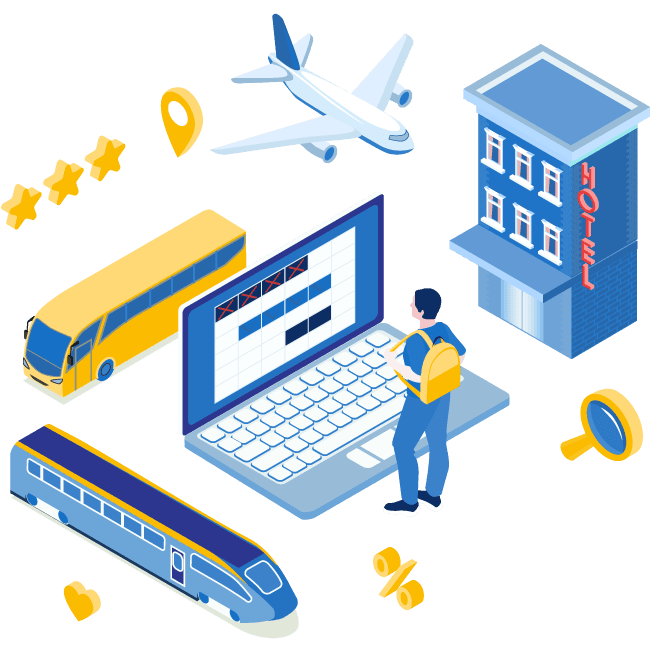
How Bus Reservation System Works?
The bus ticket management system is not like a traditional database. The traditional database is computerized for ticketing and tracking the bus's real-time whereabouts. It keeps track of all bus details, user details, booking details, and reservation details, making travel convenient, seamless, and simple.
A passenger will be able to buy any bus ticket over the Internet using the 24 hours a day, 365 days a year, and the bus ticket will not be stolen, left behind, or lost. Furthermore, a traveler can choose a bus based on the journey time, bus type, bus rating, and facilities/amenities supplied while onboard.
Get on board with our seamless online bus ticket booking system and enjoy a stress-free journey to your destination.
Cutting Edge Features Of Bus Reservation System & Booking Solution
- Login
- GPS tracking and booking management
- Tracking of buses
- Dashboard
- Number of passengers
- Inventory Control
- Reservations Management
- Customer management
- Driver Management
- Control Hub
- Routes and Timetables
- Manage Employees
- Loyalty and Reward
- Manage Notifications
- Manage the Payments
- Comments & Suggestions
Generate More Bus Booking & Delight Travelers Through A Powerful Bus Reservation System

Why Choose OneClick As A Top Bus Reservation System Development Company?
-Our online bus booking software offers unmatched flexibility, perfectly tailored to meet your company's unique requirements.
- bus reservation system provides scalable solutions suitable for businesses of all sizes, ensuring seamless operations and growth opportunities.
-The NDA protects all intellectual property.
-The experience you require is delivered by a team of over 100 people.
-24/7 support is available, and it is free for the first 30 days after delivery.
-We are always on time - no matter what deadline is set for delivery; we will meet it.
-Working with start-ups for over ten years in online bus ticket reservation system
-Engineering solutions and dynamic designs for bus booking system We possess extensive expertise in crafting tailor-made designs for online bus reservation system.
Advance Benefits Of Bus Reservation System
 Omnichannel Sales Management in Real-Time.
Omnichannel Sales Management in Real-Time. Advanced Fare Management
Advanced Fare Management Modern Fare Management Capabilities
Modern Fare Management Capabilities Advanced Inventory Control
Advanced Inventory Control
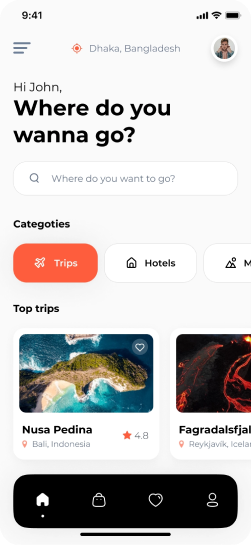
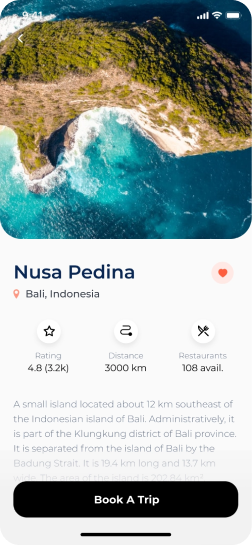
 Modern Digital Marketing Tools
Modern Digital Marketing Tools- Capability for Self-Service
 Capability for Business Analysis
Capability for Business Analysis APIs for Integration that are Rich and Well-Documented
APIs for Integration that are Rich and Well-Documented

How Much Does It Cost Of Develop Online Bus Booking System?
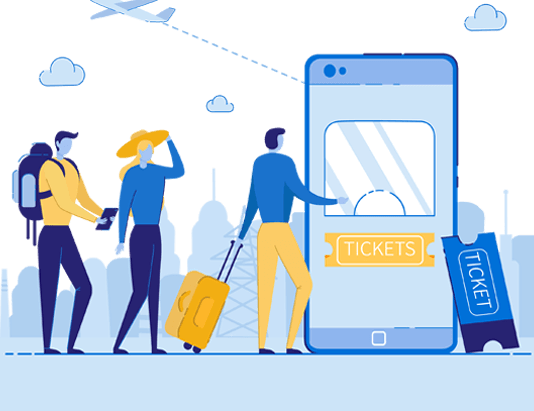
The list of features and the technology stack to be merged has been decided; the only item left to be considered is the cost estimation for the Bus Ticket Booking Application Development.
If you have a large budget, it is far better to go for a Mobile Development Firm with years of expertise and honors to its credit in order to deliver the best-in-class apps. You will end up with a fantastic product that will justify your investment.
Experience the convenience of booking your tickets from anywhere in the world with our reliable online ticket booking system.
However, there are a few key elements that influence the estimated cost of developing Bus Reservation System:
- Android, iOS, or both platforms are available.
- Functionalities and features
Generate More Bus Booking & Delight Travelers Through A Powerful Bus Reservation System
Our Case Studies

On Demand Food Delivery App
The case study of On Demand Food Delivery App and it's creative process for interaction design: check the user experience solutions for food order and delivery mobile app. Technology has also contributed to the changes in consumer preference as their dependence on technology has moved them to do everything online including getting cooked meals delivered to their doorstep.

Video Conferencing App Like Zoom
Video conferencing has successfully solved many challenges of remote working. But how about data and security threat? This factor alone has given rise to an increased demand for developing video conferencing app like Zoom or Meet. SMEs and larger enterprises are comparing the cost of monthly Zoom subscriptions to app development costs. And the latter seems to be a lucrative deal.

Doctor On Demand Healthcare Mobile Application
Doctor On Demand Healthcare mobile application is one of the most flexible, time-saving, and convenient substitutes that make use of your cellphone internet connection to connect you with hundreds of doctors and book an office visit or a house call appointment within few taps. The app is quite user-friendly, and you can book your appointment with easy steps.
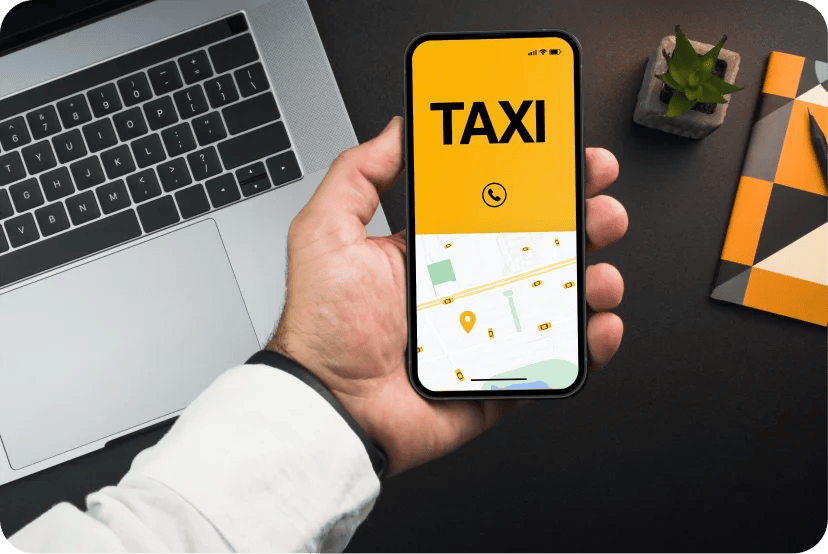
On Demand Taxi Booking Application Like Uber
The Taxi app is one of the best and top on-demand taxi apps that help you to avail quick and smooth rides within hours. It won't take much time to avail of your first ride with a smooth signup process and user experience UI. There are few steps to book your ride like: Set your pickup and drop-off location, select car type in available option, and you'll get a confirmatin within a few minutes.
FAQs Of Bus Reservation System Booking Engine
To install any of our scripts, your hosting account must support PHP 5.1 or higher, as well as MySQL 5.1 or above. If you are unsure whether your account supports these features, please contact us and we will confirm this for you. If you are unable to install PHP scripts, we offer remote hosting for our products. Effortlessly book your bus journeys with our state-of-the-art bus ticket software, making travel a breeze.
A computerized system used to store and retrieve information and conduct transactions relating to bus inventory, operator records, booking, and ticketing is known as an online bus reservation system. It is a component of bus booking systems.
OneClick gives a cloud-based bus reservation system that includes IBE, supplier interface, in-built extranet for bus operators, route scheduling, seat mapping, seat selection by travelers, price and availability management, and more. If you already have a bus booking website, we can immediately integrate the BRS platform into it.
About Bus Reservation System

12+ Years of Experience in Bus Reservation System
OneClick offers top advance bus booking reservation system that helps your customer book seats online and get all the confirmation of their next journey. It's also allows online modifications and cancellations features. Also Business owner manage the record of customers booking details as per the bus schedule. We've also 3rd Party API which we can have thousands of bus booking vendor to fulfill your website and generate a good amount of business. Experience hassle-free ticket booking from the comfort of your own home with our innovative online ticket booking software.

Hire Dedicated Online Bus Reservation System Developers
As awarded top travel technology solution provider company, We provides a responsive online bus booking software for the travel management agencies, travel operators and tour companies to offer their services worldwide. Skip the long lines and book your next adventure with ease - try our hassle-free online ticket booking system today! Connect at contact@itoneclick.com a FREE Estimation Quote for your next Online Bus Booking System Solution.

